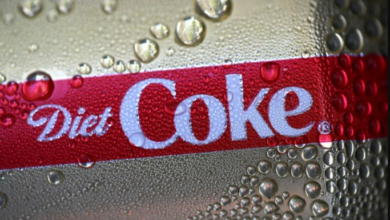Starbucks Faces Boycotts Amid Middle East Conflict and Unionization Efforts

Starbucks, the world’s largest coffee company, is currently grappling with boycotts and protests related to the Middle East conflict and unionization efforts within the company. This period poses significant challenges for the brand, known for its global presence and widespread appeal.
Boycotts Over Middle East Conflict
Recently, a Starbucks store in New York was spray-painted with pro-Palestinian graffiti, and another nearby location faced customer accusations of the brand being anti-Israel. These incidents reflect the broader geopolitical tensions surrounding the Middle East conflict and how they are impacting global brands like Starbucks. In response, Starbucks CEO Laxman Narasimhan released an open letter emphasizing the company’s commitment to humanity and condemning violence, hate, and lies.
Financial Impact and Unionization Challenges
Starbucks has also been affected financially. Analyst John Ivankoe of J.P. Morgan lowered the company’s U.S. sales forecast for the fiscal first quarter, citing slower holiday sales. Starbucks’ share price subsequently dropped. The company faced a wave of anger when it sued Workers United, the union organizing its employees, over a pro-Palestinian social media post. Starbucks claimed it had no official stance on the war and was concerned about customer confusion, but the move was perceived by protesters as pro-Israel.
The company later refiled the lawsuit with revised language, affirming respect for workers’ rights to express views on the Middle East conflict and other political issues. The focus was stated to be on protecting workers’ safety and Starbucks’ reputation, but the initial damage to public perception remained.
Unionization Protests
Compounding the situation are the ongoing unionization efforts. More than 370 company-owned Starbucks stores in the U.S. have voted to unionize since late 2021, but no contract agreement has been reached. In November, workers at several hundred U.S. Starbucks stores staged a walkout, impacting sales on one of the company’s traditionally busiest days of the year.
These developments represent a complex challenge for Starbucks, balancing global brand reputation with internal labor relations and external geopolitical pressures.
Starbucks Faces Boycotts Amid Middle East Conflict and Unionization Efforts
Starbucks, the world’s largest coffee company, is currently grappling with boycotts and protests related to the Middle East conflict and unionization efforts within the company. This period poses significant challenges for the brand, known for its global presence and widespread appeal.
Boycotts Over Middle East Conflict
Recently, a Starbucks store in New York was spray-painted with pro-Palestinian graffiti, and another nearby location faced customer accusations of the brand being anti-Israel. These incidents reflect the broader geopolitical tensions surrounding the Middle East conflict and how they are impacting global brands like Starbucks. In response, Starbucks CEO Laxman Narasimhan released an open letter emphasizing the company’s commitment to humanity and condemning violence, hate, and lies.
Financial Impact and Unionization Challenges
Starbucks has also been affected financially. Analyst John Ivankoe of J.P. Morgan lowered the company’s U.S. sales forecast for the fiscal first quarter, citing slower holiday sales. Starbucks’ share price subsequently dropped. The company faced a wave of anger when it sued Workers United, the union organizing its employees, over a pro-Palestinian social media post. Starbucks claimed it had no official stance on the war and was concerned about customer confusion, but the move was perceived by protesters as pro-Israel.
The company later refiled the lawsuit with revised language, affirming respect for workers’ rights to express views on the Middle East conflict and other political issues. The focus was stated to be on protecting workers’ safety and Starbucks’ reputation, but the initial damage to public perception remained.
Unionization Protests
Compounding the situation are the ongoing unionization efforts. More than 370 company-owned Starbucks stores in the U.S. have voted to unionize since late 2021, but no contract agreement has been reached. In November, workers at several hundred U.S. Starbucks stores staged a walkout, impacting sales on one of the company’s traditionally busiest days of the year.





